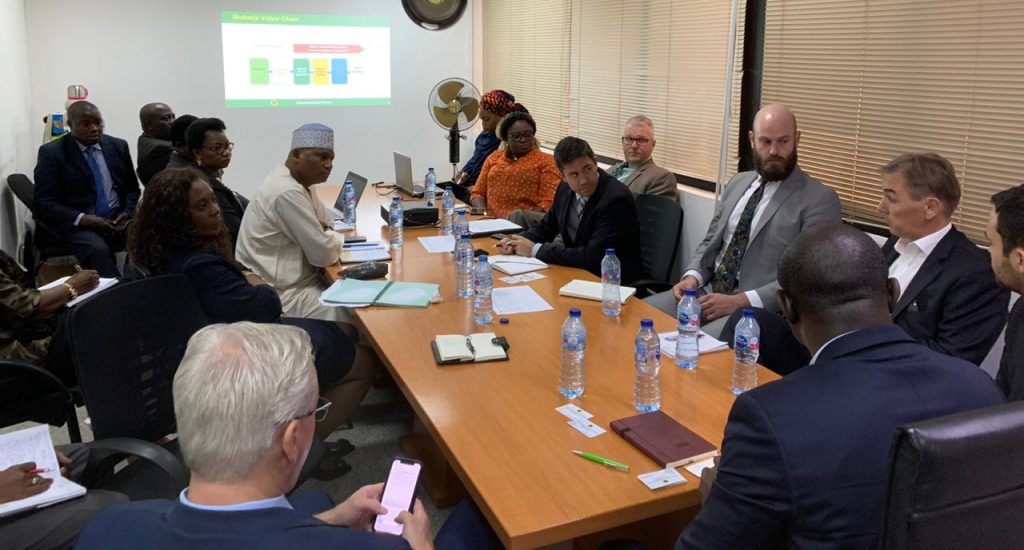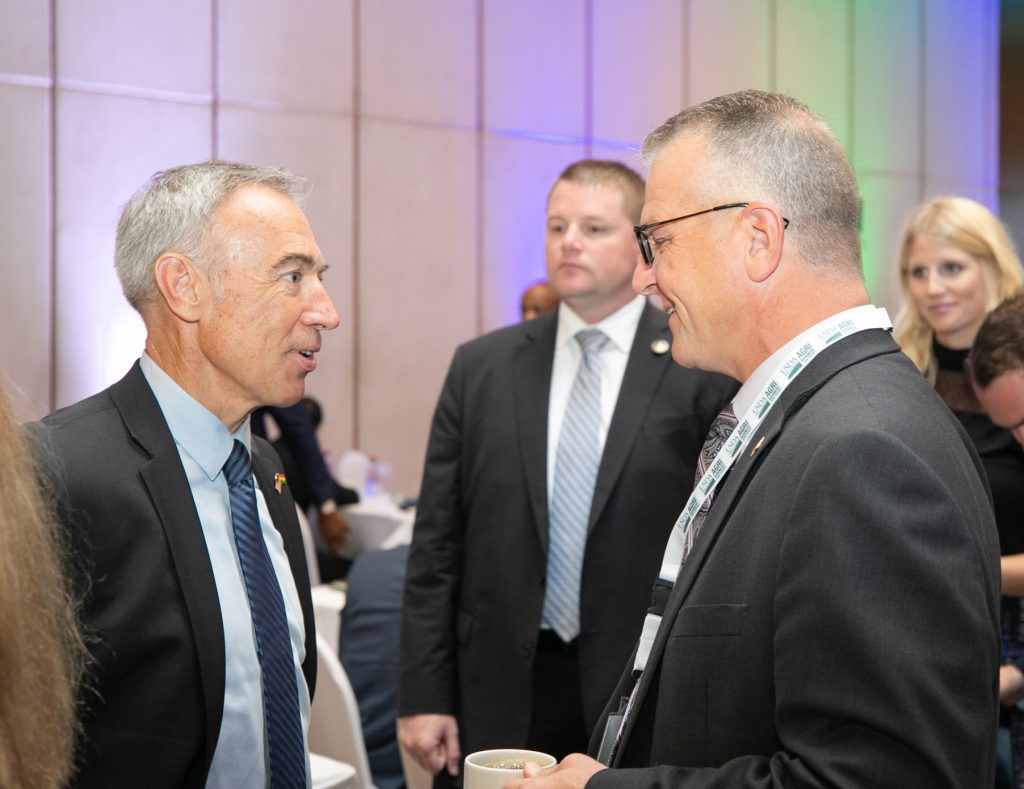Two weeks following his keynote at the Global Ethanol Summit, U.S. Deputy Secretary of Agriculture Stephen Cenksy led an agricultural trade mission to West Africa to help unlock new opportunities in the region, including ethanol.
The U.S. Grains Council (USGC), together with key ethanol and corn industry members, joined the mission to Ghana and led a separate mission to Nigeria to follow up with contacts and dialogue from the Summit and to discuss ethanol’s octane, economic and environmental advantages with regional officials and traders.
“The Global Ethanol Summit has been critical to further our West African engagement and has created in-country advocates for ethanol use,” said Brian Healy, USGC director of global ethanol market development, who participated in the mission. “Both Ghana and Nigeria had delegations attend the Summit and a post-tour in Colorado, which provided for an information exchange on both the benefits of increased ethanol use as well as the shared policy and technical challenges related to ethanol adoption.”
Nigeria is already the 14th largest market for U.S. ethanol, importing 18 million gallons valued at $26 million in the 2018/2019 marketing year for the industrial use market. Nigeria also produces some ethanol domestically for the industrial use market, predominately using cassava for a feedstock.
While the country has had an E10 policy on the books since 2007, the policy has never been enforced. The USGC delegation conveyed the opportunity for expanded Nigerian ethanol production as imported ethanol could provide a bridge between domestic production and policy demand, chiefly allowing Nigeria to save on foreign exchange. With limited online refining capacity, Nigeria is largely reliant on imports of finished fuel, which is heavily subsidized and has been the same price for nearly three years
“Our follow-up efforts in the region focus on demonstrating the economic value of using ethanol in the fuel supply,” Healy said. “Environmental and human health benefits are attached to expanded use, but with a nearly 40 percent subsidy on fuel, the government of Nigeria is looking to ease the impact of this subsidy on government coffers, the same narrative we see in Indonesia, Egypt and Ecuador, among others.”
Ghana currently has no policy in place for blending ethanol, and the current fuel specification does not allow for blending. Like Nigeria, Ghana is reliant on imports of finished gasoline, with domestic refinery capacity supplying 10 percent of the country’s fuel needs.
Along with Nigeria and 13 other countries, Ghana is part of the Economic Community on West African States (ECOWAS), which is working to standardize fuel specifications across member states to possibly include an ethanol oxygenate component. The updated specifications are designed to meet more stringent sulphur content requirements for the region that could be supported by ethanol inclusion.
“An oxygenate component is critical in reducing particulate matter emissions in every country, especially one growing as fast as Ghana,” Healy said. “Through work with the ECOWAS Center for Renewable Energy and Energy Efficiency, which harmonizes regional specifications and standards, the government of Ghana can revise specifications to allow for ethanol as an oxygenate to reduce both particulate matter emissions and sulphur content of fuel.”
Continued conversations between governments and industry stakeholders in the United States, Nigeria and Ghana will be key to increasing the opportunities for ethanol in these markets. The Council plans to follow-up on the trade mission’s engagement through additional meetings and activities with stakeholders, including a reverse trade mission for West African refiners and legislators to further expand technical information exchange.
Learn more about the Council’s work to promote ethanol use in Africa.
About The U.S. Grains Council
The U.S. Grains Council develops export markets for U.S. barley, corn, sorghum and related products including distiller’s dried grains with solubles (DDGS) and ethanol. With full-time presence in 28 locations, the Council operates programs in more than 50 countries and the European Union. The Council believes exports are vital to global economic development and to U.S. agriculture’s profitability. Detailed information about the Council and its programs is online at www.grains.org.


